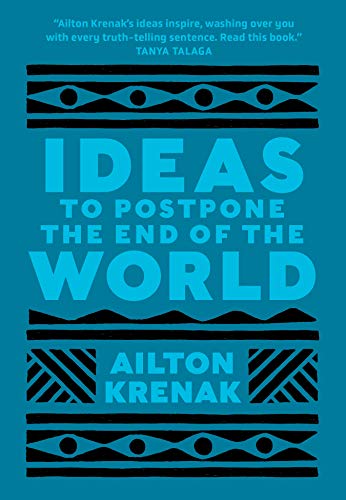For the generations that are and the ones (hopefully!) to come
Priscylla Joca
Academia | Instagram | Twitter
A new year begins with a sense of déjà vu and new pandemic waves. feelings of endurance, mourning, struggles, losses, resilience, and resistance.
I wrote this text because of Téo’s anxiety after watching “Don’t Look Up.” I was feeling I needed to tell him, “Son, your generation will need to critique-imagine a lot to (re)build and don’t be afraid of the future, hold on to the energy of your 15 years, Look Up and dream and sing to Postpone Ends of Worlds and build Possible Futures.” In the face of it all, the desire to dream and imagine possible futures strengthens like a movement of re-existence for non-dystopian times.
One of the significant challenges of our time is to imagine possible futures. Or even to imagine a future at all, on a local or global scale. We remember watching (post)apocalyptic movies and seeing them as alternative but somewhat distant realities. Perhaps many of us never imagined that we would watch the US comedy-drama “Don’t Look Up” with unease, wonder, identification, and empathy. Because it’s true, it really could happen, metaphorically or otherwise.
After the movie, one may experience a sense of fear, anxiety, and helplessness. What do we do about this uneasiness? In my opinion, the concern can strengthen the desire to imagine possible futures and the will to fight for the present and the future. I come from Brazil. In this territory, sort of ends of worlds is already happening. This is just one of the disastrous effects of a genocidal and ecocidal government. In the geopolitical South of the world, we have learned that resistance, subjective and objective, is the only way to reinvent human existence.
In the face of the ecological, social, and economic consequences of extractive capitalism and in the face of climate change and the climate crisis in times of a pandemic, it is not easy to imagine a future that is not catastrophic. But rather one that is directed towards social, environmental and climate justice for Indigenous and non-Indigenous people. But we must imagine! We need to dream about futures to keep moving forward. Where to? To the dream of a future where we would like to live beyond merely surviving.
Ailton Krenak, a thinker from the Krenak People (Brazil), in his book Ideas to Postpone the End of the World (2020,) invites us to continue imagining the future. To tap into our capacities to be creative and critical, to learn from indigenous people who have much to teach us. He invites us to tell, listen to and share stories. According to him, if we can tell stories of other possible worlds and futures, we will delay the end of the world. Ailton Krenak invites us to take advantage of our creativity. Not to fear the falls and to look at the vastness of the cosmos from the perspective of our tiny, colored parachutes.
This fall, I had the chance to teach the Aboriginal Law course at the Faculty of Law of the Université de Montréal. It was a wonderful and enriching experience! As a teacher, we must share our knowledge and hopes. So, in the final exam, I asked the students: How do you imagine possible futures as future lawyers?
What about you? How do you imagine possible futures?
